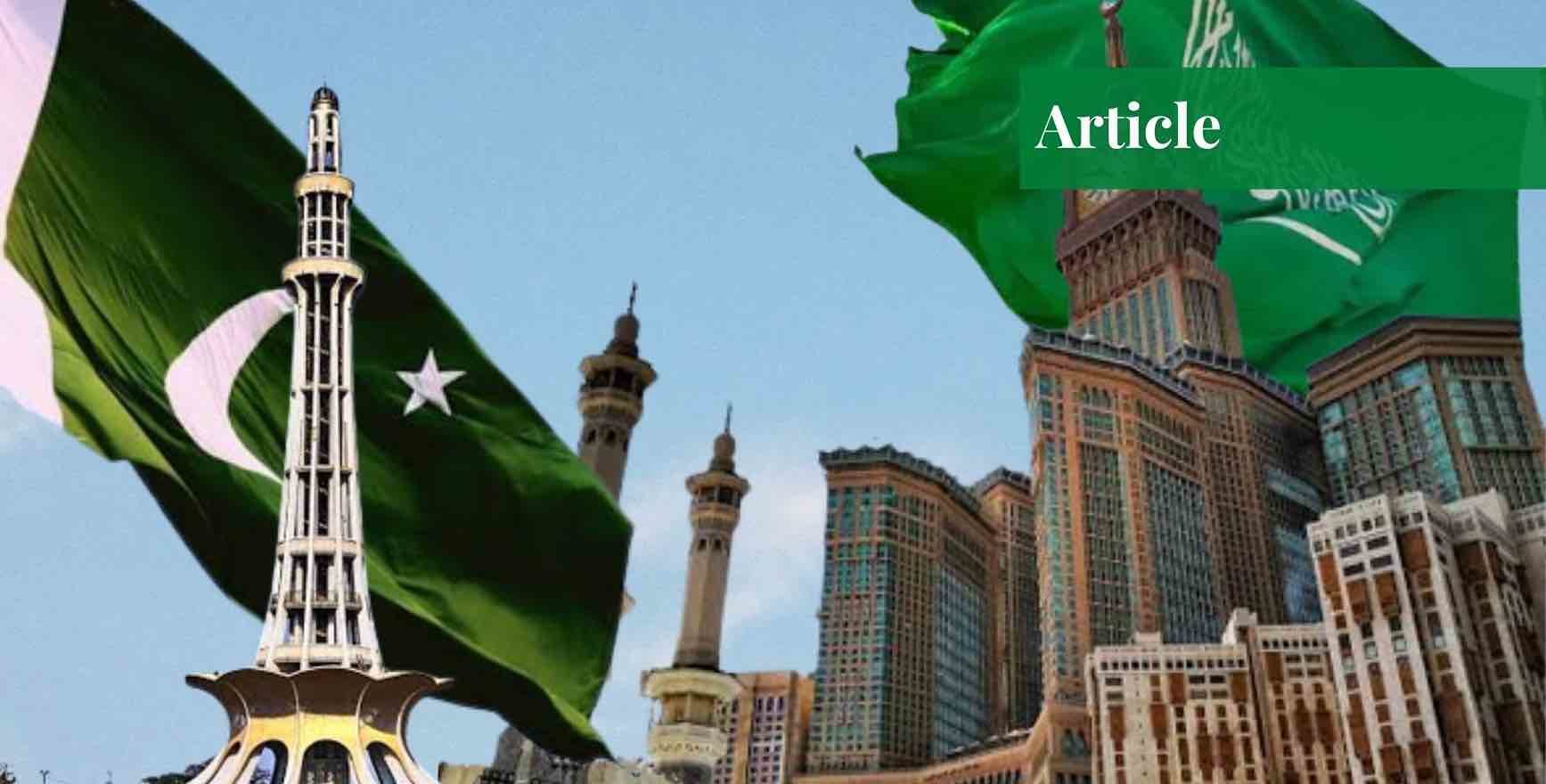Ms Afifa Iqbal has a keen interest in identity politics, colonialism and post-colonial development. She is currently working as a Research Assistant at ITU while pursuing her postgraduate studies in Development, Technology and Policy. She is a Gold Medalist in Political Science from the University of Punjab.
Introduction
There are many places and settings for idealism; foreign policy is really not one of them. The same holds true for adjectives like permanent, enduring, and moral. No empire, city-state or nation-state ever stood with another empire, city-state or nation-state solely out of moral obligation and forever. As far as foreign policy is concerned, morality, permanence and idealism could never be the faces that launched a thousand ships.
“The purpose of foreign policy is not to provide an outlet for our own sentiments of hope or indignation; it is to shape real events in a real world.” – John F. Kennedy (35th US President)
Any attempt to mould foreign policy around these is a quixotic attempt destined to fail. Unfortunately, the foreign policy of Pakistan vis-à-vis Saudi-Arabia is an embodiment of the aforementioned terms. In the past, the geopolitical and economic interests of Pakistan and Saudi Arabia were such that imbuing foreign policy with those terms worked.
However, changing geopolitical and economic interests make it fatalistic to keep formulating and packaging foreign policy around these variables. In fact, such a foreign policy would go against Pakistan’s foreign policy objectives as highlighted by the Ministry of Foreign Affairs.
Foreign Policy Objectives
The Ministry of Foreign Affairs picked out the following statement of Quaid-e-Azam Muhammad Ali Jinnah regarding the foreign policy goals of Pakistan to display on its website: “Pakistan’s Foreign Policy seeks to protect, promote and advance Pakistan’s national interests in the external domain.”
Pakistan’s current foreign policy vis-à-vis Saudi Arabia does not “protect, promote, or advance Pakistan’s national interests in the external domain”. It is a relic of the past and designed around an antiquated geo-political reality that no longer exists.
Promotion of Pakistan
Even in the past, the Kingdom has had a less than stellar record when it came to extending fundamental human rights to its citizens on an equal basis. However, that can easily be brushed off as an internal matter of the Kingdom. After all, ensuring fundamental human rights for another state’s citizens is really not the purpose of foreign policy.
That being said, it indeed is the purpose of foreign policy and the duty of the diplomats to make sure that the fall-out from such violations does not impact the image of the home country. In this regard, the Kingdom’s recent crackdown against human rights activists, journalists (particularly the Khashoggi episode) and other dissident voices would have far-reaching impacts on the already embattled Pakistan’s image.
This crackdown warrants that Pakistan starts creating a binary between Saudi Arabia as a state and Saudi Arabia as a religious ‘site’ if it intends to salvage its image as a ‘dynamic, progressive, moderate, and democratic Islamic country’. Upholding the status quo is no longer going to be beneficial for Pakistan.
Developing Friendly Relations & Safeguarding Interests
It goes without saying that the alliance with Saudi Arabia has caused Pakistan significant obstacles in forging a strategic relationship with its immediate neighbour, Iran. In the past, geopolitics was such that an alliance with Saudi Arabia and the US seemed to be more important than Iran. So, religiously charged and ideology-driven foreign policy worked; it was far from perfect even then, but it worked.
However, the recent deteriorating situation of security in Balochistan and the cross-border networks of terrorists demand that Iran be given more importance in the foreign policy equation. The goodwill of the Iranian leadership could go a long way in placating the brewing unrest in Balochistan. In this regard, Pakistan needs to reconfigure the Saudi-Iran equation keeping in view that both are strategically important allies.
Moreover, changing US-Saudi dynamics in light of the Democratic Party’s control over the Senate, House of Representatives, and the White House provide Pakistan with an added incentive to change its orientation towards Saudi Arabia. Having stated that, strategic relations with Iran are important for securing the national security and geostrategic interests of Pakistan, but even more than that, these relations can potentially hedge Pakistan’s bets against increasing Indo-Saudi bonhomie.
The diplomatic crisis triggered by then-Foreign Minister Shah Mahmood Qureshi’s remarks regarding the Kingdom’s inaction in OIC over India’s hegemonic designs in Kashmir drives home the point. On top of this, Saudi Arabia’s military entanglements in Syria and Yemen are a potential liability for Pakistan, given the ongoing humanitarian crisis in these states as well as the historical dependency of the Kingdom on Pakistan’s military.
Again, Pakistan has had a symbiotic relationship with Saudi Arabia in the past in which Pakistan helped Saudi’s armed forces and the Kingdom provided economic aid. This quid pro quo is not going to work anymore. Pakistan’s reluctance to support Saudi’s designs in Yemen brings to the fore the changing geostrategic interests of Pakistan which warrant a revision of the terms of the relationship.
Consolidating Cooperation & Safeguarding the Interests of the Pakistani Diaspora
Pakistan’s decision to back out of the 2019 Kuala Lumpur Summit drew the ire of many and raised questions about Pakistan’s diplomatic conduct. Pakistan’s heavy dependence on aid from Saudi Arabia and UAE is not only putting Pakistan in a weaker position to safeguard the interests of the Pakistani diaspora in the Gulf countries but also constraining Pakistan from establishing economically and commercially beneficial relations with other regional allies.
While the relationship between Pakistan and Saudi Arabia cannot be compromised, given Pakistan’s dependency on fuel imports, remittances, and economic aid, it must be adjusted to the changing reality. Pakistan needs to diversify its portfolio and redesign its foreign policy along more pragmatic lines that accommodate emerging powers in the Muslim world.
Again, the point to remember is that the religious emotionalism of the past will only set up Pakistan for anticipatory losses in the diplomatic world like that of the 2019 Kuala Lumpur Summit.
Conclusion
Pakistan’s ‘holy’ alliance with the Kingdom has begun to incur heavy costs to Pakistan. In the previous decades, the global geopolitics, ideological unity, and the nature of both states’ leadership were such that the idealist foreign policy worked to everyone’s advantage, barring the future fallout for Pakistan in terms of religious polarization and restricted relations with strategically important regional states.
However, contemporary geopolitical configurations render obsolete the religious emotionalism and ideological element that has been the hallmark of Pakistan-Saudi Arabia relations. So, what Pakistan needs is a gradual reframing of its foreign policy vis-à-vis the Kingdom.
It is high time for Pakistan to carve out a strategic alliance with the Kingdom instead of a holy one. Put succinctly, Pakistan needs a pragmatic foreign policy devoid of idealism and religious emotionalism that suits the changing geopolitical realities.
“The question shouldn’t be what we ought to do, but what we can do.” – Rory Stewart
If you want to submit your articles, research papers, and book reviews, please check the Submissions page.
The views and opinions expressed in this article/paper are the author’s own and do not necessarily reflect the editorial position of Paradigm Shift.



















